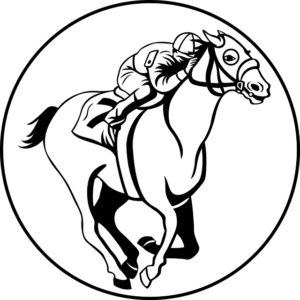There isn’t a bigger horse racing event in Australia than the annual Melbourne Cup; this is also known as the most famous Group 1 thoroughbred horse racing event in all of Melbourne.
Horses three years old and above race a staggering distance of 3200 meters, with thousands of people from all over Australia attending the event, not to mention the millions tuning in worldwide. That is probably why it’s known as “the race that stops the nation”.
The Melbourne Cup started in 1861 and has seen ever-increasing growth over the years, so much so that it has been a national public holiday.
Read on for information about the Melbourne Cup.
When Is The Event?
The Melbourne Cup will take place at Flemington racecourse on the 1st of November 2022, with gates opening at 8:30 and the race starting at 15:00 local Australian time.
How To Get To The Event?
So you’ve secured your ticket for the Melbourne Cup, but now you want to know what will be the best way to get there.
Well, you’ve got enough options to choose from; you can take the tram at number 57 Maribyrnong that will take you directly to Flemington racecourse on Epsom road.
You can also take the train at Flinders Street and Southern Cross station, which will be able to take you directly to Flemington. Otherwise, you’ll have to take the 404 or the 472 route when you’re travelling by car or bus.
Melbourne Cup Ticket Information
Below you’ll find all the information regarding the various events you can attend at the Melbourne Carnival Cup Event.
| Event |
Adults |
Concession |
Family |
| Penfolds Victoria Deby Day |
$83.00 |
$45.00 |
$146.00 |
| Lexus Melbourne Cup Day |
$89.00 |
$62.00 |
$158.00 |
| Kennedy Oaks Day |
$60.00 |
$31.00 |
$100.00 |
| Paramount and Stakes Day |
$64.00 |
$32.00 |
$108.00 |
| Note: Children under 12 don’t have to pay admission. |
How And Where Can I Place Bets?
Before explaining how and where to place your bets, remember that you must be 18 years or older to register and bet. The information given is not for advertising betting but rather for educational purposes.
So you have the option of visiting the Totalisator Agency Board betting shops, but if you want a less confusing way, you can do it via online booking. For more information regarding the event and horses, you can visit Neds for all the betting requirements you desire.
There is also the option of getting a bookie.
However, it’s recommended that only individuals with some experience in the horse racing world should get a bookie; before you do, make sure to do your homework, as many websites offer this service.
How Are The Entries Selected?
If you want to gain entry into the Melbourne Cup, there are numerous ways in which you can go about this. You can purchase one of the horses already nominated to enter the race by the owner.
Otherwise, as the owner, you can enter your horse into the ballot system with the hopes it will be one of the 24 horses selected for the race.
Before you decide to enter, there are two requirements everyone must follow to participate.
The first one is the horse must be at least three years old. And the other one is the handicap weight must not be less than 50kg or more than 57kg.
FAQS
Will I be able to watch the Melbourne Cup online?
Yes, you will be able to watch it on Channel 10 if you reside in Australia.
Where will I be able to watch it online outside Australia?
For those living overseas, you’ll also be able to enjoy the Melbourne Cup action. New Zealanders can stream the race on Racing.com and Sky Racing channels. Those residing in Ireland or the UK can watch it on Sky Racing.
What time does the event start outside of Australia?
For those in New Zealand, the event will kick off at 17:00, and for those in the UK, the event will start at 5:00 in the morning.
Conclusion
This event is truly a unique occasion when everyone in the country gets together and enjoys everything horseracing. Many people use this occasion to dress up, sip champagne, and wager on their favourite horses they believe will win.
It is also time to spend with family in wonderful weather. It doesn’t matter what you choose to focus on during this special day; one thing is for certain, it is a significant day for Australia and its history.
